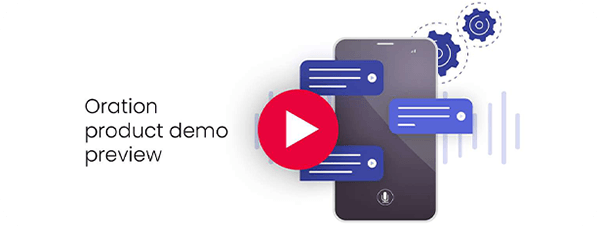To meet customer expectations in a modern and highly digitised world, customer service functions have been developed to handle customer interactions through a variety of channels. These include the traditional phone method, email, live chat, SMS messaging, and even social media. The integration of all these communication platforms is what's known as the modern omnichannel contact centre. It is designed to offer more choice and convenience to well-connected, tech-savvy customers who have their own preferences when it comes to how and when they need support.
As you can imagine, the omnichannel contact centre relies on a complex web of sophisticated technologies. These are all integrated to deliver customers with fast and seamless experiences as they move and interact across different channels. But there’s no need to feel intimidated by consumers’ expectations, especially if you're a small business owner.
Fortunately, contact centres have become so much more technologically advanced behind the scenes. Businesses of all sizes can now offer their customers the advantages of an omnichannel contact centre experience without having to invest large amounts of money or develop the in-house technical expertise to build and manage systems and infrastructure.
A cloud contact centre is where all the core contact centre technologies are delivered by a third-party provider using cloud computing capabilities. The global cloud contact centre market is anticipated to grow from AU$8.9 billion in 2017 to AU$33.2 billion by 2023 with a compound annual growth rate of 25% during this period. Cloud contact centre solutions are internet-based facilities offering immediate access to a range of tools, no on-premise technology requirements, easy scaling and applications designed to deliver exceptional customer experiences across multiple channels.
How the cloud contact centre compares to traditional infrastructures
The traditional in-house contact centre infrastructure is extremely limiting, and many companies still relying on legacy systems are quickly realising that they can't keep up with the pace of change. Like trying to steer a ship around a corner, updating your traditional call routing system, or even adding new channels to the environment, can involve costly IT projects. These projects can take months to roll out from the moment a business case is put forward to the planning and implementation phases.
By migrating to a cloud contact centre solution, your software is maintained as evergreen - this means you are always automatically on the latest and greatest version and features are continuously added with zero downtime on the platform. This leaves your business with a sophisticated and up-to-date contact centre operation without the common pain points and expense of building and managing traditional infrastructures. Around 75% of contact centres are cloud-based; 44% are fully integrated and 31% are a hybrid form. Designed for plug and play, all you’ll need to do is configure your tools for your individual business and customers. Crucially, the costs of operating and owning a cloud contact centre are much less than developing and maintaining your own.
Spotlight on the key benefits of cloud contact centre solutions for your business
- Resilience and reliability. In-house contact centre systems are solely reliant on internal IT teams or vendor support, which means when issues occur, speedy resolutions can often be dependent on in-house expertise and even staff working hours. Consequently, in this scenario, there is always the risk of prolonged periods of disruption to business until a solution is found and implemented.
On the other hand, cloud contact centre solutions offer high levels of reliability, supported by robust data recovery measures and experts who are dedicated to managing and upgrading the system 24/7. If you experience any issues with a cloud contact centre solution, you can guarantee you’ll be up and running again in no time at all. Maybe this is one of the reasons why 61% of organisations say they’re planning on moving their contact centre to the cloud. Meanwhile, you’ll also benefit from consulting with experts who will get to know your business and help you identify ways to configure your cloud contact centre for optimum efficiency and performance. - Supports a more flexible and scalable workforce. Many contact centres experience peaks and troughs in workload, which are usually driven by the seasonality of the businesses they support or one-time promotions that encourage an influx of calls.
But quickly increasing or reducing the number of agents according to the volume of calls can be tricky with traditional contact centre systems which might require you to arrange additional software licences, additional computers or storage – among other things. Not only is this costly and time-consuming to organise, but this approach is also inflexible and leaves you stuck with technology you don’t need when customer demand takes a nosedive.
Cloud contact centres cost up to 27% less and suffer from 35% less downtime than traditional contact centre setups. Cloud contact centre solutions allow you to instantly scale your team of agents up and down according to needs because the technology is already there ready to go, hosted by a third party. Importantly, your costs are contingent on the size of your contact centre, so you’ll only ever pay for what you use. - Easier to manage the customer experience without IT support. With traditional call centre infrastructures, it’s difficult to make changes to the customer experience such as altering where calls are routed, introducing new self-service options, or adjusting and adding new targeted banners.
54% of consumers believe organisations should invest in innovative ideas to improve customer engagement and experience. Changing the system usually requires call centre managers to budget for and initiate IT projects with tech teams which can take time and requires a lot of communication and collaboration. Making any change can seem like a game of catch-up when it comes to evolving the traditional contact centre with the business and customer demands.
Cloud contact centre add-on solutions like Oration offer an intuitive platform so contact centre professionals can retain control and manage the customer experience themselves without relying on IT support. For example, while a range of pre-packaged self-service applications can be quickly configured for use, new targeted banners can be added with just a few clicks of a button.
Here's another example, imagine a scenario where a retail store runs out of stock for a particular item. In this case, the contact centre manager can jump in and create a message which automatically delivers important information to customers calling about the product, diverting unnecessary calls from agents.
Empowering contact centre managers to better manage the customer experience independently, Oration’s reporting and analytics dashboard also offer real-time and historical insights into what’s going on across the contact centre function. Consequently, managers can identify common query types and issues which might inform changes to the way calls are routed, including the information provided and options available, improving the overall customer experience in a highly responsive manner. - Improves productivity and efficiency. Migrating to a cloud contact centre solution gives you access to the latest productivity-boosting technologies for your call centre. Oration’s cloud-based intelligent call routing system uses AI-powered speech recognition and language interpreter technology to ensure calls are always routed to the right outcome the first time. Around 40% of organisations are incorporating self-service functionalities, like that supplied by Oration, to resolve customer queries more efficiently.
With the ability to automatically understand why customers are calling from their natural responses, contact centre managers can configure the system to ensure certain call types are routed to the most appropriately skilled agents who can handle calls in the fastest time.
Identifying the precise nature of a call also means contact centre managers can leverage a variety of suitable deflection techniques. These techniques free up agents’ time for more complex calls and give customers more convenient ways to find out information, interact, or perform tasks – such as offering self-service or shifting to SMS or chat portals.
Cloud contact centre solutions can also be easily integrated with other business applications like a CMS, which means agents can be provided with important information about customers before they pick up the call, reducing average handling times. Integration between business systems also means customers can be authenticated to securely complete more complex tasks independently over the phone, such as by matching customer details or voice biometrics with customer records.
Conclusion
Contact centres today are under pressure to do more for customers with the same resources, but with speed and cost a critical factor, traditional contact centre infrastructures are simply not cutting it when it comes to evolving with the times. Cloud contact centre solutions are changing the game. By offering fast and flexible access to the most up-to-date technologies, a cloud contact centre solution promises to deliver the more personalised experiences your customers expect without the time, effort, cost, commitment, and rigidity of developing systems in-house.
.png?width=3750&height=1323&name=Convai%20logo%20-%20final_Convai%20logo%20-%20final%20(1).png)






